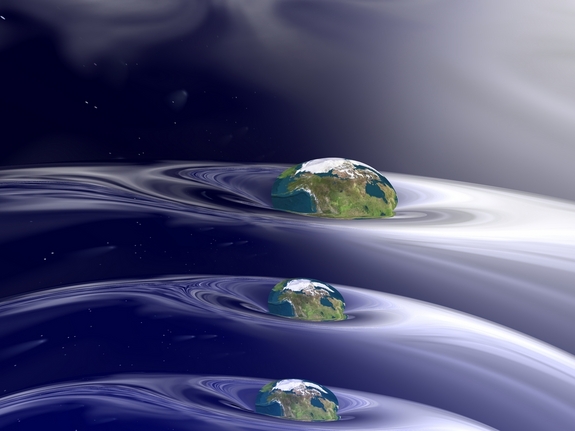Infinite Universes
Scientists can't be sure what the shape of space-time is, but most likely, it's flat (as opposed to spherical or even donut-shape) and stretches out infinitely. But if space-time goes on forever, then it must start repeating at some point, because there are a finite number of ways particles can be arranged in space and time.
So if you look far enough, you would encounter another version of you — in fact, infinite versions of you. Some of these twins will be doing exactly what you're doing right now, while others will have worn a different sweater this morning, and still others will have made vastly different career and life choices.
Bubble Universes

In addition to the multiple universes created by infinitely extending space-time, other universes could arise from a theory called "eternal inflation." Inflation is the notion that the universe expanded rapidly after the Big Bang, in effect inflating like a balloon. Eternal inflation, first proposed by Tufts University cosmologist Alexander Vilenkin, suggests that some pockets of space stop inflating, while other regions continue to inflate, thus giving rise to many isolated "bubble universes."
Thus, our own universe, where inflation has ended, allowing stars and galaxies to form, is but a small bubble in a vast sea of space, some of which is still inflating, that contains many other bubbles like ours. And in some of these bubble universes, the laws of physics and fundamental constants might be different than in ours, making some universes strange places indeed
Daughter Universes
The theory of quantum mechanics, which reigns over the tiny world of subatomic particles, suggests another way multiple universes might arise. Quantum mechanics describes the world in terms of probabilities, rather than definite outcomes. And the mathematics of this theory might suggest that all possible outcomes of a situation do occur — in their own separate universes. For example, if you reach a crossroads where you can go right or left, the present universe gives rise to two daughter universes: one in which you go right, and one in which you go left.
One's reality is not the only reality there are many hidden realities
No comments:
Post a Comment